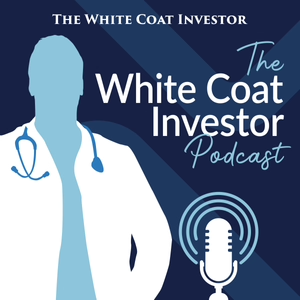
Ep. 112: Speed of Science, with Pfizer’s Albert Bourla and Johnson & Johnson’s Alex Gorsky
12/16/20 • 27 min
Albert Bourla
Chairman and CEO, Pfizer
Alex Gorsky
Chairman and CEO, Johnson & Johnson
“I think history has shown us to have major leaps forward almost after every crisis. Whether it's a war, a natural disaster, or frankly a big challenge such as going to the moon, these kinds of inflection points force us to go in new directions to collaborate and to accelerate technological breakthroughs.” – Alex Gorsky
Two of the most important CEOs in the world today – Pfizer’s Albert Bourla and Johnson & Johnson’s Alex Gorsky – spoke recently with Mike at the Milken Institute’s Future of Health Summit. While Pfizer is already scaling up production and distribution of their mRNA-based vaccine, Gorsky’s company is looking forward to the third-stage clinical trial results for their single dose, vector-based therapy. The unprecedented collaboration fostered at all levels of the biomedical sector has paid dividends, with many more potential treatments to come.
“I'm very proud for what we have been able to achieve,” Albert Bourla tells Mike. “We will see many more companies in the next few weeks and months demonstrating similar successes in their projects against COVID because one vaccine or two vaccines will not be enough for the entire world. The world needs options.”
Albert Bourla
Chairman and CEO, Pfizer
Alex Gorsky
Chairman and CEO, Johnson & Johnson
“I think history has shown us to have major leaps forward almost after every crisis. Whether it's a war, a natural disaster, or frankly a big challenge such as going to the moon, these kinds of inflection points force us to go in new directions to collaborate and to accelerate technological breakthroughs.” – Alex Gorsky
Two of the most important CEOs in the world today – Pfizer’s Albert Bourla and Johnson & Johnson’s Alex Gorsky – spoke recently with Mike at the Milken Institute’s Future of Health Summit. While Pfizer is already scaling up production and distribution of their mRNA-based vaccine, Gorsky’s company is looking forward to the third-stage clinical trial results for their single dose, vector-based therapy. The unprecedented collaboration fostered at all levels of the biomedical sector has paid dividends, with many more potential treatments to come.
“I'm very proud for what we have been able to achieve,” Albert Bourla tells Mike. “We will see many more companies in the next few weeks and months demonstrating similar successes in their projects against COVID because one vaccine or two vaccines will not be enough for the entire world. The world needs options.”
Previous Episode

Ep. 111: Global Scale, with Leaders from Murdoch Children’s Research Institute
Sarah Murdoch
Co-Chair, Murdoch Children’s Research Institute (MCRI)
Kathryn North
Director, Murdoch Children’s Research Institute (MCRI); David Danks Professor of Child Health Research, University of Melbourne
Hamish Graham
Paediatrician and Senior Research Fellow, Murdoch Children’s Research Institute (MCRI); University of Melbourne; Royal Children’s Hospital
“With COVID, there's been this renewed focus on the importance of medical research. ... With more funding and with philanthropic partners, I'm really optimistic about the further impact that we can make on that global scale.” – Sarah Murdoch
When Dame Elizabeth Murdoch founded the Murdoch Children’s Research Institute (MCRI) in 1986, she wanted sought to create an organization dedicated to making discoveries to prevent and treat childhood conditions. Today, MCRI is Australia’s top pediatric health research institute and among the top three worldwide for research quality and impact, with more than 1,200 investigators in 35 countries.
“We've got our eye on the long-term impacts of COVID,” MCRI Director Kathryn North tells Mike. “We have quite a lot of previous data on the well-being, the health, and the mental health of children and families in our community. But we've now been able to continue to liaise with those families, to look at the direct effects of COVID and then look out into the future.”
Next Episode

Ep. 113: “To Boldly Go,” with Operation Warp Speed’s Moncef Slaoui
“The efficacy of these vaccines is spectacular. It's 95%, the same whether you are an African-American or Hispanic or over 65 years old. ... Remarkably, these two vaccines developed in different companies, two different continents, give incredibly similar results, totally independent, which is also enhancing the likelihood that these data absolutely are real.”
In a triumph of modern science and leadership, millions of highly effective doses of COVID-19 vaccines are currently being manufactured, distributed, and administered around the world. For this, much credit goes to Moncef Slaoui, the Chief Science Officer for Operation Warp Speed, a U.S. public–private partnership that has fostered development of these breakthrough drugs.
The Moroccan-born Slaoui – who previously worked on vaccines for the H1N1, Ebola, and Zika viruses in a 30-year career at GlaxoSmithKline – tells Mike that the lessons learned in 2020 should inspire investments to prevent future pandemics. “I think that would be my way forward. We are bleeding $20 billion a day; let's spend $300 million a year when we don't have a pandemic. Let's be preventative.”
If you like this episode you’ll love
Episode Comments
Generate a badge
Get a badge for your website that links back to this episode
<a href="https://goodpods.com/podcasts/conversations-with-mike-milken-58163/ep-112-speed-of-science-with-pfizers-albert-bourla-and-johnson-and-joh-10422516"> <img src="https://storage.googleapis.com/goodpods-images-bucket/badges/generic-badge-1.svg" alt="listen to ep. 112: speed of science, with pfizer’s albert bourla and johnson & johnson’s alex gorsky on goodpods" style="width: 225px" /> </a>
Copy




